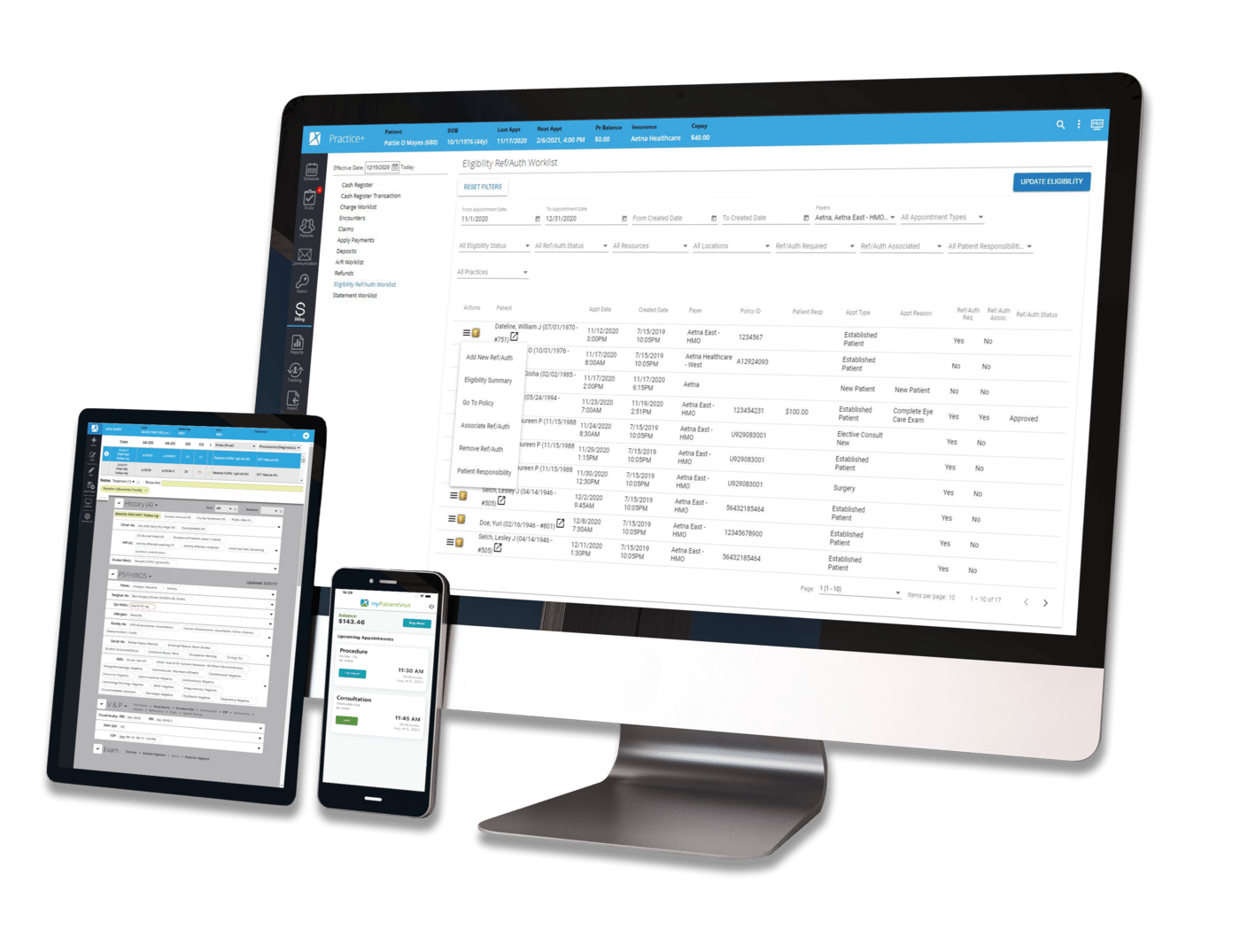Latest Articles
The latest news and information regarding electronic medical records, practice management software, HIPAA, and security from Nextech.
Courtney Tesvich serves as Nextech's VP of Regulatory and Compliance.

Regulatory & Compliance | cures act
By:
Courtney Tesvich
October 21st, 2020
In addition to the Information Blocking updates we discussed in a recent blog post, the 21st Century Cures Act Final Rule also requires use of Cures Act Edition certified software. This will include some new and revised certification criteria. Providers will need to have their EHR updated with these new requirements in time for the 2022 reporting period. Is your EHR provider ready?

Regulatory & Compliance | Security & Data Management | cures act
By:
Courtney Tesvich
October 8th, 2020
The information blocking requirements of the Cures Act Final Rule will take effect on November 2, 2020. This means healthcare providers have barely a month to ensure they are in compliance or risk financial penalties. When it comes to allowing proper access to information as required by HIPAA, commonly called “Right of Access,” regulatory entities have already begun cracking down on violators. In 2019, the Office for Civil rights (OCR) at HHS had announced its intention to more aggressively enforce the rights of patients to have prompt access to medical records without being overcharged for it.


By:
Courtney Tesvich
August 20th, 2020
The Centers for Medicare and Medicaid Services (CMS) recently released its proposed 2021 Medicare Physician Fee Schedule. Among the proposed items are a number of significant changes to the Quality Payment Program (QPP) for next year. To make sure your practice knows what to expect with these new changes, here is a list of just some of the more notable items:

By:
Courtney Tesvich
June 15th, 2020
On June 9, 2020, the U.S. Department of Health and Human Services (HHS), through the Health Resources and Services Administration (HRSA), announced new redistributions from the Provider Relief Fund to eligible Medicaid and Children’s Health Insurance Program (CHIP) providers who participate in those programs. As a result, HHS plans to distribute approximately $15 billion to Medicaid and CHIP program participants who have not received a payment from the Provider Relief Fund General Allocation.

Regulatory & Compliance | Healthcare Technology
By:
Courtney Tesvich
May 22nd, 2020
The COVID-19 pandemic is becoming far more than just a public health crisis. The effects of the virus have proven to be long reaching, transforming one crisis into many. As businesses across the country were forced to close their doors during the initial outbreak, the country experienced a record surge in unemployment due to the resulting economic fallout. While the economic crisis has received much of the attention, there is a third crisis that has been less discussed—the litigation crisis—which has already begun and is predicted to last for several years.

Regulatory & Compliance | cures act
By:
Courtney Tesvich
April 23rd, 2020
For years, one of the biggest complaints that providers have had about the Promoting Interoperability program has been that they are unable to obtain direct messaging addresses for their coordinating providers. When I speak with practices, the number one reason I hear for why their Support Electronic Referral Loops by Sending Health Information and Support Electronic Referral Loops by Receiving and Incorporating Health Information measures are scoring low is that they cannot get others to exchange CCDAs with them because of this difficulty. CMS has heard this complaint but is still requiring that providers electronically exchange care coordination information. These two measures combined are worth 40% of a clinician or group’s total Promoting Interoperability score.

Regulatory & Compliance | Financial Management
By:
Courtney Tesvich
April 21st, 2020
IMPORTANT NOTICE: As of April 26, 2020, CMS has suspended the Advanced Payment Program, effective immediately, and is reevaluating the Accelerated Payment Program. CMS Press Release on Program Suspension The current COVID-19 pandemic has impacted specialty practices across the country and around the world, resulting in low patient volumes and decreased revenues. As part of the CARES Act, the Centers for Medicare & Medicaid Services (CMS) authorized relief to providers in the form of Advanced Medicare Payments. However, it is important for providers to note that this Advance Payment Program is an interest free loan, not a grant.

By:
Courtney Tesvich
August 29th, 2019
In mid-August, the Centers for Medicare & Medicaid Services (CMS) released its 2020 Quality Payment Program Proposed Rule Overview. This document outlines changes to Quality Payment Program (QPP) policies that will take effect in the upcoming 2020 year, as well as proposed changes for 2021. It is also a summarization of the far more detailed (and roughly 1700 page long) CY 2020 Revisions to Payment Policies document. One section that is likely to be of the most interest to healthcare providers deals with new modifications to the Merit-Based Incentive Payment System (MIPS). In this article, we will be looking at these MIPS 2020 changes, particularly those that are of concern to specialty healthcare practices in fields such as dermatology, ophthalmology, plastics/aesthetics and orthopedics.